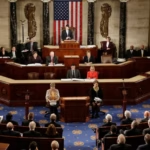The announcement of plans to launch a national securities exchange has sparked sharp criticism from economists and policy observers, who say the move is dangerously premature and rooted in a complete misunderstanding of economic fundamentals.
“This is a classic case of putting the cart before the horse,” said one analyst. “A country without a functioning national currency is now talking about building a capital market. That’s either a bad joke or a sign of how far removed some officials are from the basics of economic governance.”
Critics argue that Somalia lacks the essential infrastructure required to support such a market. Key elements such as a credible central bank, enforceable investor protections, transparent financial reporting systems, and an independent regulatory body are either missing or severely underdeveloped.
“You don’t just wake up and decide to mimic developed nations. A capital market is not a decorative institution—it rests on a complex and interlocking system of trust, accountability, and enforceability,” one Mogadishu-based financial expert noted. “Where is the legal framework? Who settles trades? Who audits the listed entities? Where is the national accounting authority?”
Skeptics warn that the project may be another ill-conceived venture marketed as development, potentially designed to lure in uninformed investors without addressing the underlying economic void.
“The lack of a stable currency alone should disqualify this attempt. No one in their right mind would trade assets denominated in a currency that doesn’t even exist in practice,” a retired banker stated. “You can’t sell air and call it investment.”
There are growing concerns that this initiative could become the latest in a string of financial mishaps that have cost Somali citizens dearly. Many still remember the unregulated forex schemes that wiped out savings just a few years ago.
“This is not progress. It’s theater,” one observer remarked. “And the fallout will be real. Once confidence breaks, the damage to trust in public institutions will take years—if not decades—to repair.”
Underlying the criticism is a broader unease about the private sector’s expanding role in unregulated financial ventures. As one commentator put it bluntly: “The private sector, in its current form, stands in the way of our financial sovereignty.”
The central question now: where are the regulators? Or has regulation become just another scripted performance in Somalia’s economic drama?













